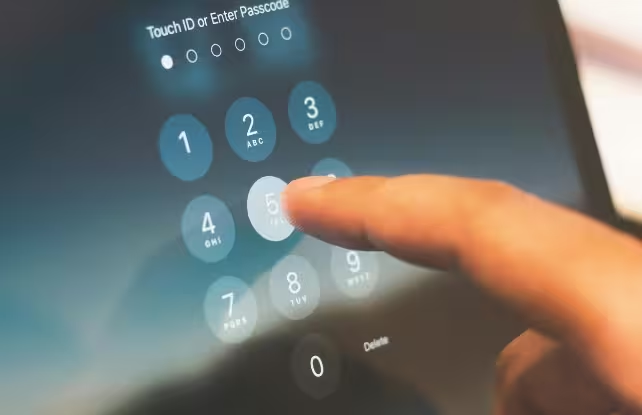6 Minutes
The Quantum Computing Revolution: Background and Context
Quantum computing is rapidly emerging as one of the most transformative technologies of the 21st century. Leveraging the principles of quantum mechanics, quantum computers utilize quantum bits, or qubits, which are capable of representing and manipulating information in ways that classical computers cannot. This unique ability allows quantum computers to solve certain computational problems far more efficiently than traditional devices. As research institutions and technology giants invest billions in quantum R&D, one question looms large: What does the rise of quantum computing mean for data security in our increasingly digital world?
Cryptography at the Heart of Cybersecurity
Modern cryptography forms the unseen protective layer for almost all digital interactions. From securing Wi-Fi networks and online banking transactions to safeguarding cryptocurrency exchanges such as Bitcoin, robust cryptographic protocols underpin global cybersecurity. Among these, public-key cryptography—specifically the RSA algorithm (named after Rivest, Shamir, and Adleman)—is a foundational technology used to establish secure connections, authenticate users, and guarantee the integrity of data.
Recent studies have sparked concerns by suggesting that it may be much easier for quantum computers to break widely used encryption codes than previously estimated. Where an earlier report predicted that cracking RSA encryption would require a quantum computer with 20 million qubits running for eight hours, the latest research claims that the task could be achieved with just 1 million qubits. These findings have intensified fears of a potential global cybersecurity crisis, triggering widespread media coverage about a so-called 'quantum cryptography apocalypse.'

Current State of Quantum Computers and Their Limitations
While prototype quantum computers exist today, their practical capabilities are still highly constrained. There are multiple approaches to building quantum computers—from superconducting circuits to trapped ions and beyond—with no universally accepted design. Presently, the most advanced quantum machines possess just over 1,000 qubits, and these systems are plagued by operational errors and instability.
Significant technical hurdles must be overcome before quantum computers can perform the types of calculations that would pose a real threat to existing cryptographic standards. Nevertheless, substantial investment and ongoing innovation mean that the field is progressing steadily, and experts anticipate major advances in the near future.
How Quantum Computing Threatens Current Cryptographic Systems
The impact of quantum computing on cybersecurity will differ depending on the type of cryptography used. For symmetric cryptography—the method responsible for encrypting the bulk of data in today’s digital world—the threat is relatively low. These systems can simply increase the length of encryption keys to counter the quantum threat.
The greater concern lies with public-key cryptography, which is essential for establishing secure channels over the internet and generating digital signatures, as used in financial transactions and blockchain technologies. RSA and similar algorithms are vulnerable to certain quantum computing techniques, such as Shor's algorithm, which could efficiently break these systems if a powerful enough quantum computer is built. Even advanced alternatives like elliptic curve cryptography (ECC) may also face risks, though details vary depending on implementation.
As research advances, new theoretical attacks and mathematical approaches continue to emerge, demonstrating that cryptography must evolve along with quantum computing. The uncertainty around how quickly quantum computers will become cryptographically relevant remains, but the risk to sensitive data and mission-critical infrastructure is taken seriously across scientific and security communities.

Navigating Uncertainty: Predictions, Timelines, and Expert Opinions
Forecasts about the arrival of cryptographically significant quantum computers are highly varied. Some experts predict breakthroughs within a decade, while others remain skeptical that such machines will become viable any time soon—or ever. The majority, however, agree that quantum computing poses a plausible future threat, with timelines ranging from 10 to 20 years or more.
It is not only engineering advances that shape this timeline, but also the improvement of quantum algorithms capable of exploiting cryptographic vulnerabilities. Importantly, even if the threat emerges decades from now, data encrypted today—especially long-term sensitive information—could still be at risk in the future. In complex environments such as banking networks or government databases, updating and replacing encryption protocols can take many years, meaning proactive planning is essential.
Preparing for the Post-Quantum Era: Responses and Solutions
Fortunately, preparations for the quantum computing era are already underway. In 2016, the U.S. National Institute of Standards and Technology (NIST) launched a global initiative to develop new cryptographic standards capable of withstanding quantum attacks—known as "post-quantum cryptography." In 2024, NIST published the first set of post-quantum standards, which include new mechanisms for secure key exchange and digital signatures designed to resist quantum decryption techniques.
To transition safely to a post-quantum world, organizations must replace vulnerable public-key systems with quantum-resistant alternatives and ensure that symmetric keys are sufficiently robust. This is a technical and organizational challenge that requires careful assessment and strategy.
Governments are offering clear guidance. For instance, the UK’s National Cyber Security Centre (NCSC) recommends that large organizations, especially those operating critical infrastructure, complete cryptographic inventories and migration plans by 2028, aiming to fully update their systems by 2035. This phased approach reflects a broad consensus that a potential quantum-driven cybersecurity crisis is not imminent but does warrant immediate and sustained action.
The Role of Regular Users
For most individuals, quantum-era preparations will be largely managed behind the scenes. Over time, as operating systems, browsers, mobile devices, and communication apps are upgraded, they will integrate post-quantum security measures—provided users keep their technology current through regular updates.
Conclusion
Quantum computing represents both a monumental opportunity and a complex challenge for global cybersecurity. While threats to existing cryptographic systems are real, particularly for public-key encryption, advances in quantum-safe cryptography and coordinated international response measures are laying the groundwork for a secure digital future.
The timeline for cryptographically significant quantum computers remains uncertain, with estimates ranging from the next decade to the distant future. What is clear is that by investing in research, updating standards, and planning proactive transitions to quantum-resistant protocols, the global community can meet the quantum challenge head-on. As the quantum landscape evolves, vigilance and adaptability will remain key. When the quantum era arrives, we will be prepared to safeguard our digital world.
Source: theconversation



Comments